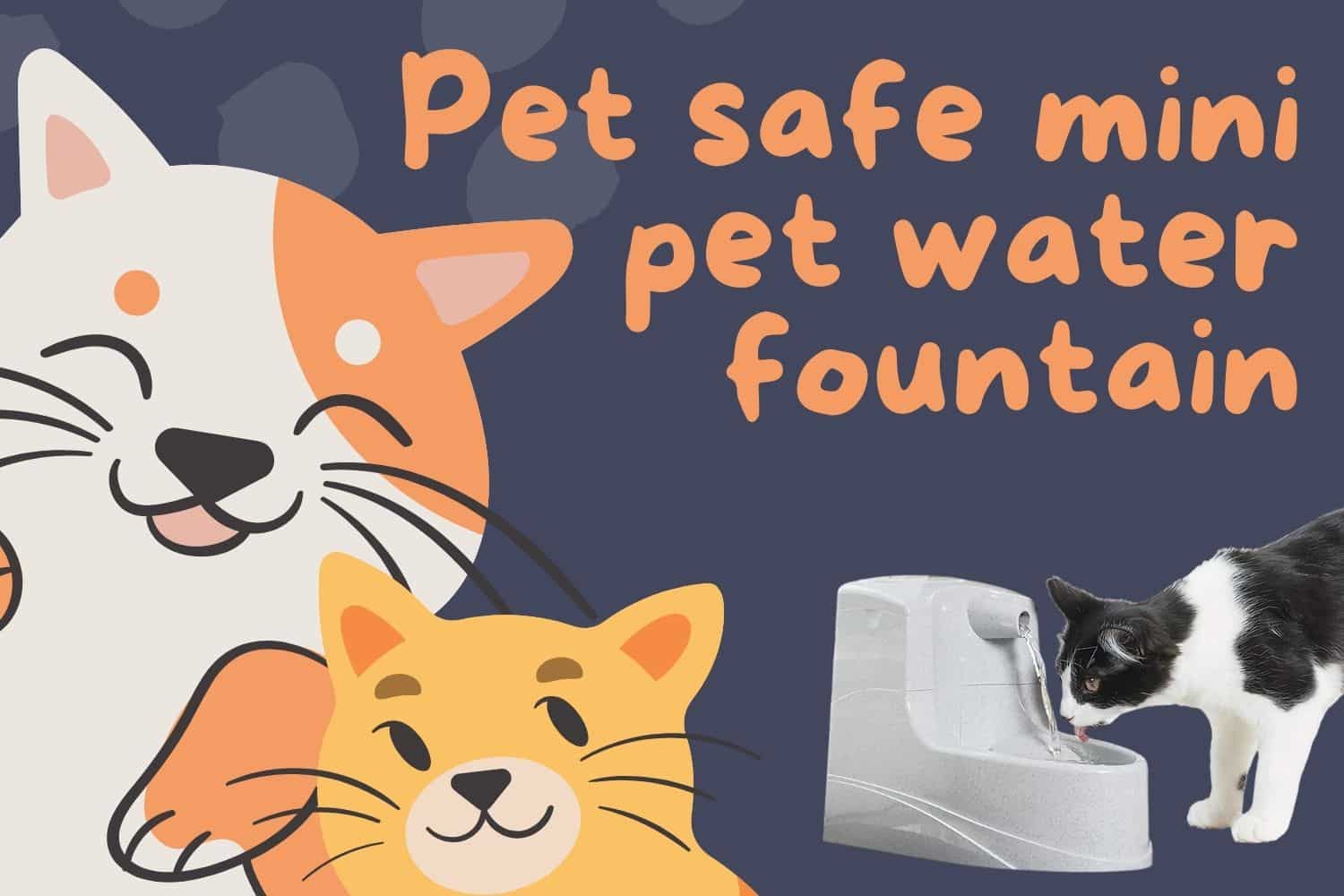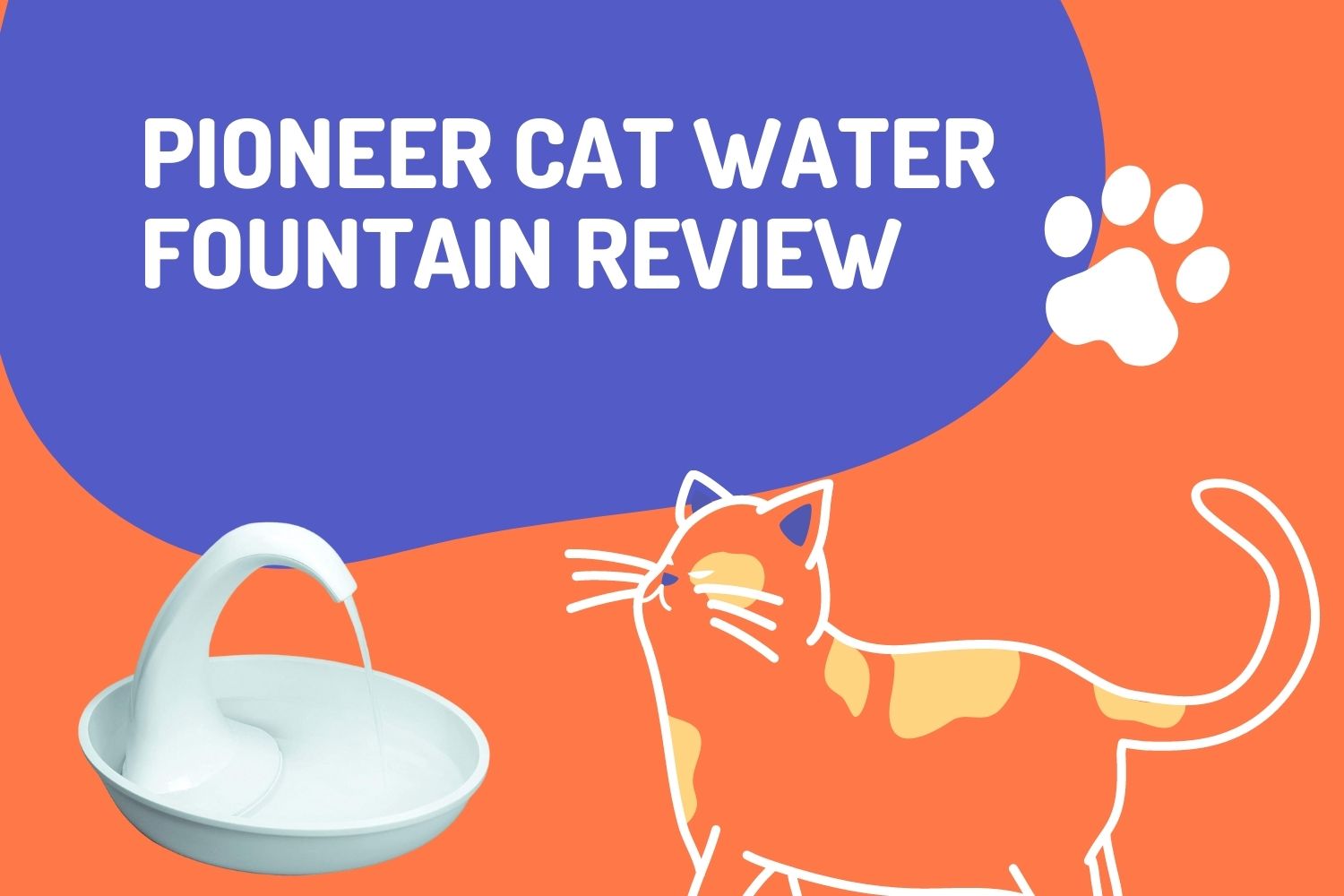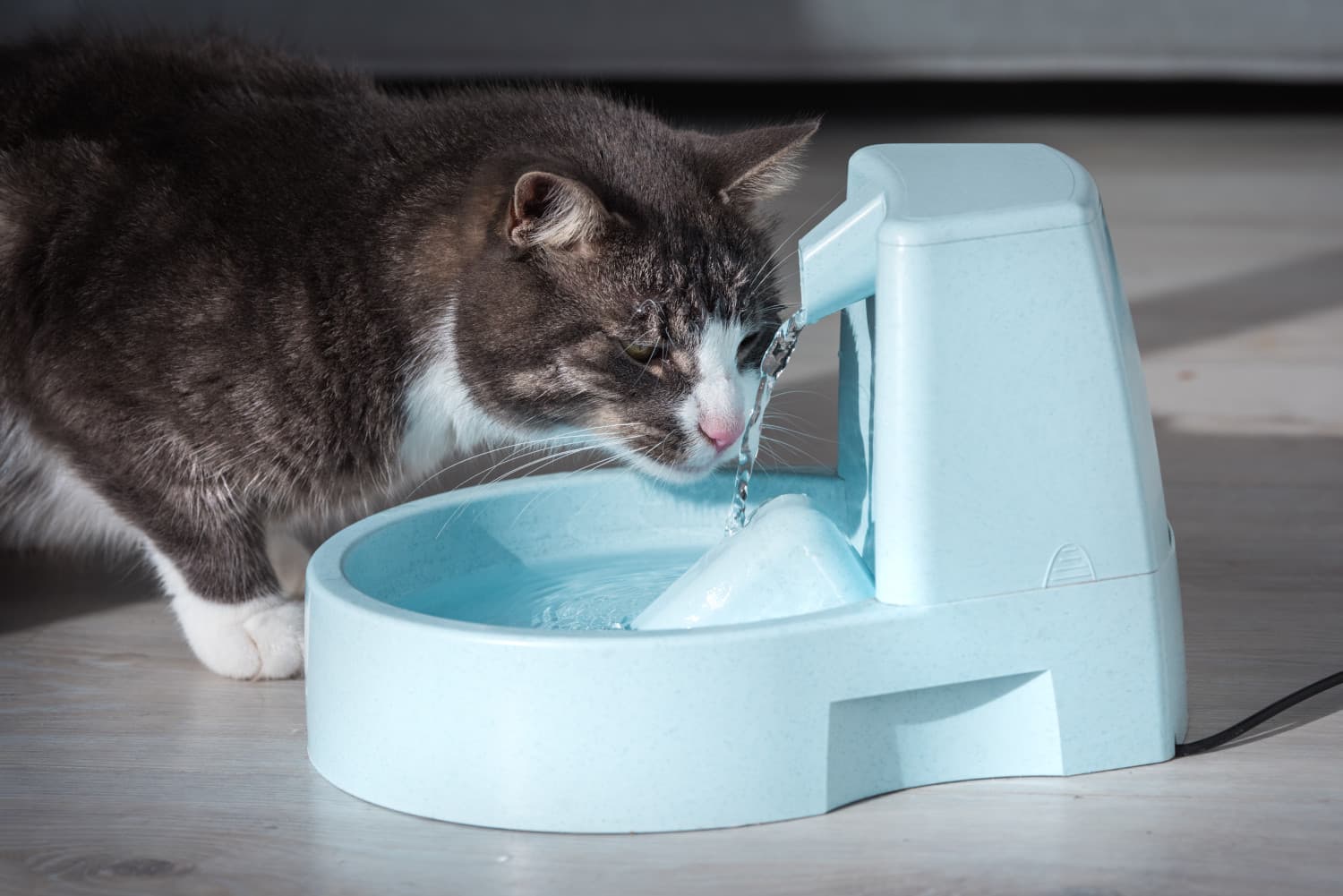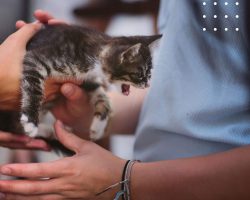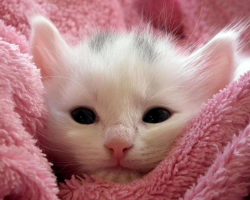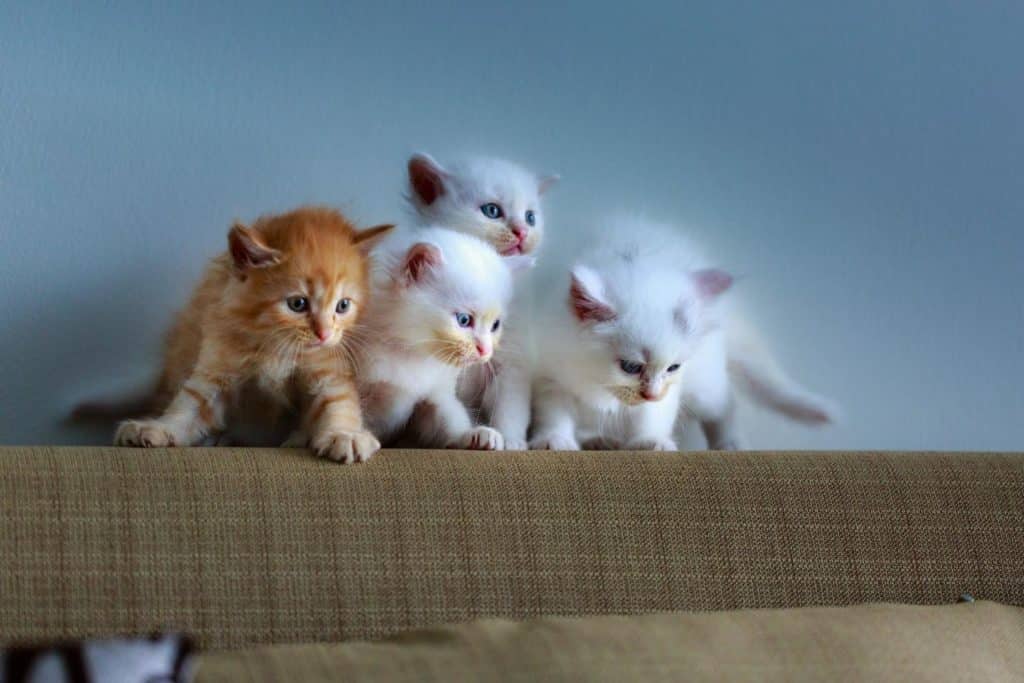
Like any young animal, kittens need proper nutrition and care to grow properly. Since they’re mammals, the ideal nourishment when they’re young is their mother’s milk. It has all the nutrients they need, in exactly the right proportions. But what else can kittens drink?
Many people assume that they can simply buy cow’s milk at the store and give this to their kittens (and their adult cats, too). After all, cats love milk and it can’t be that different from their mother’s milk, right? Keep on reading for the answer to what do kittens drink!
Gravity water bowl for cats can be a great addition to your cat’s accessories these are trustworthy and can supply water uninterruptedly.
Water
Hhydration is vital for the health of your kitten. Milk does contain water, and in ideal circumstances, a kitten will get all of the water it needs from its mother’s milk. However, it may still be a good idea to provide a source of fresh, clean water for your kittens.
While they don’t necessarily need water while they’re nursing, it’s a good thing for them to begin drinking it anyway. Dehydration is a serious and common problem for domestic cats, and learning to drink water from the bowl at an early age may help prevent problems later in life.
Kitten Formula
If your kitten is an orphan, you’ve got a serious problem on your hands. With no mother to nurse from, you have to find an alternative source of food for them.
In some cases, you may be able to find another nursing cat who will feed them, but that’s easier said than done, and many cat mothers will refuse to nurse another cat’s kittens.
The best thing to give your kitten in such a case is kitten formula. Just like the baby formula used for human babies, kitten formula is usually a powdered mix that’s designed to mimic the composition of the mother’s milk.
For kittens that are unable to nurse, the formula is the best option.
Milk
Many people offer their cats and kittens dairy milk, either as a treat or as a major part of their diet. While cats certainly enjoy drinking milk, offering it to them is a bad idea, especially for kittens.
Most cats are lactose intolerant, and milk makes them sick. Because it’s high in fat, they enjoy the taste of it so much they’ll drink it even if it hurts their stomach.
This is why you shouldn’t give milk to your kitten, especially if they’re unable to nurse. Since they can’t digest cow’s milk, if that’s all you give them, you’d be effectively starving them. Even if you only offer it as a treat, you’ll probably make them sick.
How Long Do Kittens Drink Their Mother’s Milk?
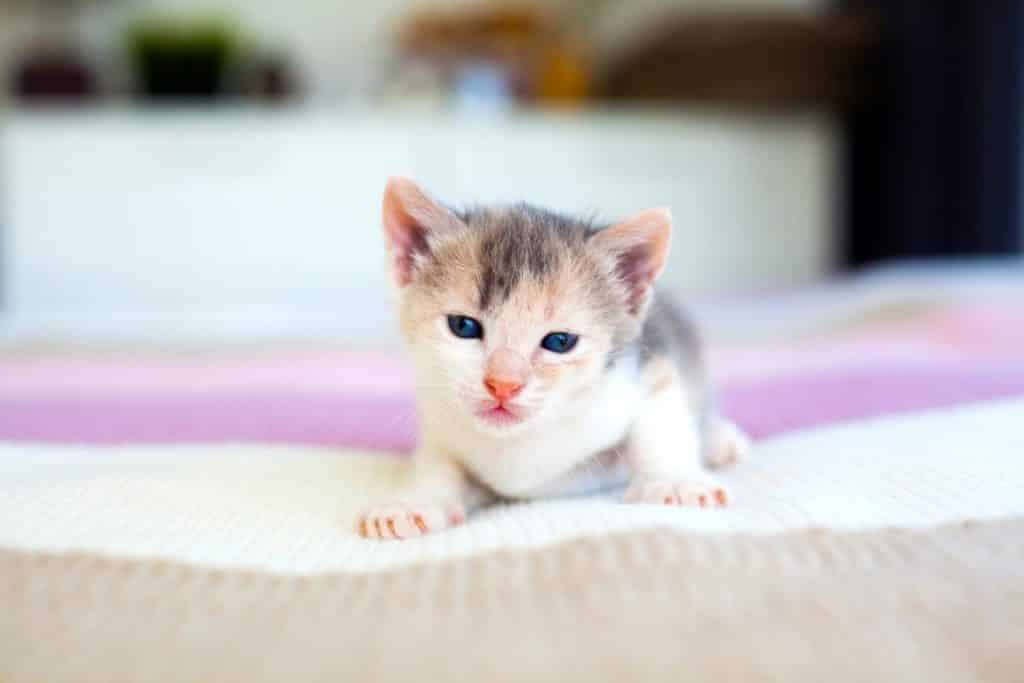
Kittens nurse for around 4 weeks. At that stage, they’ll begin to explore solid foods, and they’ll start drinking water more often. This doesn’t mean that they’re ready to stop nursing altogether, though. Many kittens will continue to nurse periodically for several weeks.
If you’re feeding with formula, you can begin offering solid foods after 4 weeks, but don’t stop giving formula completely. Your kitten probably isn’t ready to completely rely on solid food just yet.
It’s likely they’ll spend at least a couple of weeks eating both solid food and formula. That’s very normal, since it often takes their digestive systems time to fully adjust, and they probably aren’t getting all the nutrition they need out of solid food at first.
Should I Let My Kitten Drink Dairy Milk?
It’s no secret that cats love milk. The high-fat content is irresistible to them. There are some cats who are able to drink dairy milk without any problems. For these cats, cow’s milk makes a wonderful treat.
Most cats, though, are lactose intolerant. They like the taste of milk so much that they’ll drink it even if it makes them sick.
It’s best not to let your kitten drink dairy milk. It’s very likely that they’re lactose intolerant, and drinking it will make them vomit. That’s going to be unpleasant for both of you.
In addition, if all you’re giving your kitten is dairy milk, they’ll starve. Since they can’t digest it, they aren’t getting nutrition from it. And since they like the taste of it, they’ll keep drinking it anyway, which can make it seem like there’s nothing wrong. Always avoid dairy milk for kittens.
When Should I Start Giving My Kitten Water?
Most kittens won’t show much interest in water until they’re about a month old. At that point, you’ll want to make sure that there’s a constant, easily accessible supply of fresh, clean water available to them.
Filtered water is probably best, and if you can use a fountain to keep that water constantly moving, they’re more likely to drink from it.
You can certainly give them water earlier than that, though. There’s no reason not to offer them water at any age, even if they may not show much interest.
Having the water available to them may encourage them to drink more water, which is something that cats always struggle with. Cats are naturally drawn to running water since it’s usually much safer and cleaner than still water.
Cats have a lot of thirst drive because in the wild they get most of their water from their food. While they’re nursing, that’s still true, but once they switch to solid food it becomes very important to encourage them to drink more water.
Does My Kitten Need Formula?
Kitten formula can be a literal lifesaver. Kittens that are orphaned before they’re old enough to be weaned really can’t survive without it, so if you have a kitten that’s less than 4 weeks old and its mother is gone, they need formula.
Some cat mothers simply don’t nurse or have trouble producing enough milk. If you notice that kittens having trouble nursing, that’s another time when you should offer them formula.
If the kitten is older than four weeks, the formula is probably not strictly necessary.
How To Feed an Orphaned Kitten
Taking care of an orphaned kitten is both challenging and rewarding. Determining the age of the kitten is the first task. A veterinarian can help you with this.
If the kitten is older than 4 weeks, you can buy solid food for them, although you’ll still want to buy something made specifically for kittens to ensure proper growth.
If they’re younger than 4 weeks, you’ll need to feed them formula. Mix the formula in a bottle following the instructions on the packaging.
Kittens nurse with their mother lying on her side, and the kittens on their bellies, so hold the kitten flat, belly-down, with the formula bottle right in front of them. Wrap a towel around it- kittens like to knead with their claws when their nursing.
You may have to encourage them a bit, but when they’re hungry they’ll usually take to the bottle quickly. Just like with human babies, give them as much as they want- it’s impossible to overfeed them at this stage in their life.
Things You Shouldn’t Feed a Kitten
There are some things you should never offer to your kitten. These foods can all present a serious health hazard to them if you do. If your kitten has consumed any of the following things, watch them closely and take them to the nearest veterinarian if they show any signs of distress.
- Cow’s milk
- Cheese
- Ice cream
- Onions and garlic
- Raw eggs
- Raw meat and bones
- Grapes and raisins
- Chocolate
- Dog food
To educate feline parents our experts recently write on can cat drink tap water and we also layout a complete step-by-step process on how to get a kitten to drink water?
Conclusion
Kittens are actually somewhat limited in what they can safely drink. Other than their mother’s milk, the only thing they’ll drink in large quantities is the formula. While they might happily drink cow’s milk, doing so will almost certainly make them sick.
Offering water is a good idea, but be aware that they probably won’t drink much of it, especially when they’re very little.
The very best thing for your kitten to drink is their mother’s milk, so if that’s not an option you should buy formula for them right away. Cow’s milk will make them sick, and if it’s all you offer them they’re going to starve.

